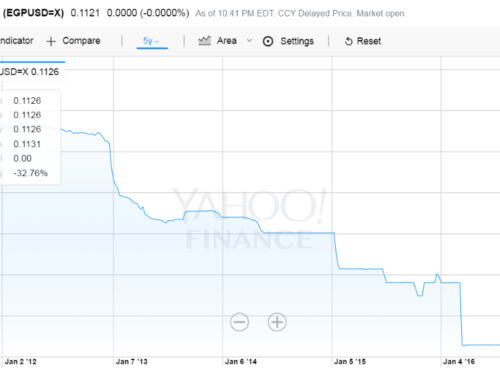
Along with sadness, grief, and anger, there was another emotion I felt when I heard the news of the horrible death of Lt. Muath al-Kasasbeh: namely, envy. I envied Jordan.
I envied Jordanians for their collective compassion and outrage. I envied them for their ability to cut through political lines to come together in a national moment of sadness and anger, out of respect for a heroic man who looked death in the eye and did not falter.
Even those who stand in opposition to the king, and those who vehemently oppose Jordan’s participation in the strikes against Islamic State (IS), were able to differentiate between their political positions and their unequivocal condemnation of Muath’s murder.
Despite the unfortunate frequency of political violence in my own country of Egypt, it’s been a long time since Egyptians came together in a moment like that. In Egypt, even death has become repulsively politicized. The killing of protesters and activists, now a tragic weekly occurrence, never fails to attract mockery, sometimes even malicious delight and unconcealed schadenfreudefrom government supporters. Victim-blaming has become the norm. “Why did they go there in the first place?” people ask cynically when they hear of yet another killing — as if protesters across the country had chosen to stand in the path of police bullets and clubs.
Such comments seem especially ironic coming from the supporters of a regime that explicitly acknowledges that it came to power on the back of protests. Even teenage soccer fans, like the 22 supporters of the Zamalek clubwho were killed yesterday when the police fired teargas and birdshot at them as they attempted to enter the stadium, find no sympathy from the state and its supporters. Government sympathizers insisted, as if that was somehow a justification for the death of two dozen teenagers, that “they didn’t have tickets.”
The public reaction isn’t much better when Egyptian soldiers die in military conflict. Sadly, there are those who have expressed indifference or, worse, joy at the death of Egyptian military personnel in Sinai. Those who exhibit such sentiments don’t seem able to differentiate between the military-political leadership and the conscripts standing at border posts; in some cases, they also appear to be suffering from a misplaced desire for vengeance against anyone in uniform. (Perhaps it’s worth noting that such people are failing to adhere to the quintessential Islamic edict that no one should be blamed for someone else’s faults.)
Unfortunately, the military leadership itself, and its media mouthpieces, have collectively cheapened the sacrifice made by these men. They persist in blaming the Muslim Brotherhood for the deaths in Sinai because of its alleged connections with the IS-affiliated “Province of Sinai” terrorist group (formerly known as Ansar Beit al-Maqdis) — despite the complete lack of proof for such allegations, and contrary to the fact that an Islamic State spokesperson has declared the Muslim Brotherhood to be infidels. By doing so, the military has intentionally turned these brave men into political playthings, exploiting their memory (and allowing others to exploit it) for the sake of the odd disparaging headline and a few points of popularity. (The photo above shows relatives mourning members of the security forces killed in a terrorist attack in the Sinai at the end of last month.)
Some entirely well-minded activists find it hard to mourn military personnel as fervently as they do fellow members of the opposition, fearing they’ll be perceived as “pandering” to the military government. In doing so, such people have succumbed to the facile dichotomy that turns activists into automatic opponents of the military. Yet this simplistic stance tends to run roughshod over a positive Egyptian tradition of the military as the “army of the people” — or, as the Egyptians refer to it, the “army of the fellahin,” thefellahin being the peasants who have historically made up the core of the population of this agricultural nation.
It is difficult to think of Muath without thinking of Ayman El Dessouky, whose murder — while less spectacular than Muath’s – was also caught on camera just a few days prior.
Snatched from his vehicle in broad daylight, he can be heard, on the video released by the terrorists, telling his assailants that his wife is pregnant. Later, as the video continues, Dessouky reads out a message from the terrorist group demanding the release of female prisoners; cut to the next scene, where, blindfolded, be he is brought to his knees and shot in the back of the head.
Yet these widely viewed images have failed to drum up the kind of national outrage we’ve seen in Jordan.
The Egyptian compassion deficit has reached dangerous levels. If the fates of all of these myriad victims fail to bring people together in shared moments of grief and simply become tools for cheap political point scoring, then the lack of compassion may very well be irreversible.
Originally Published in Foreign Policy Magazine – Transitions.



